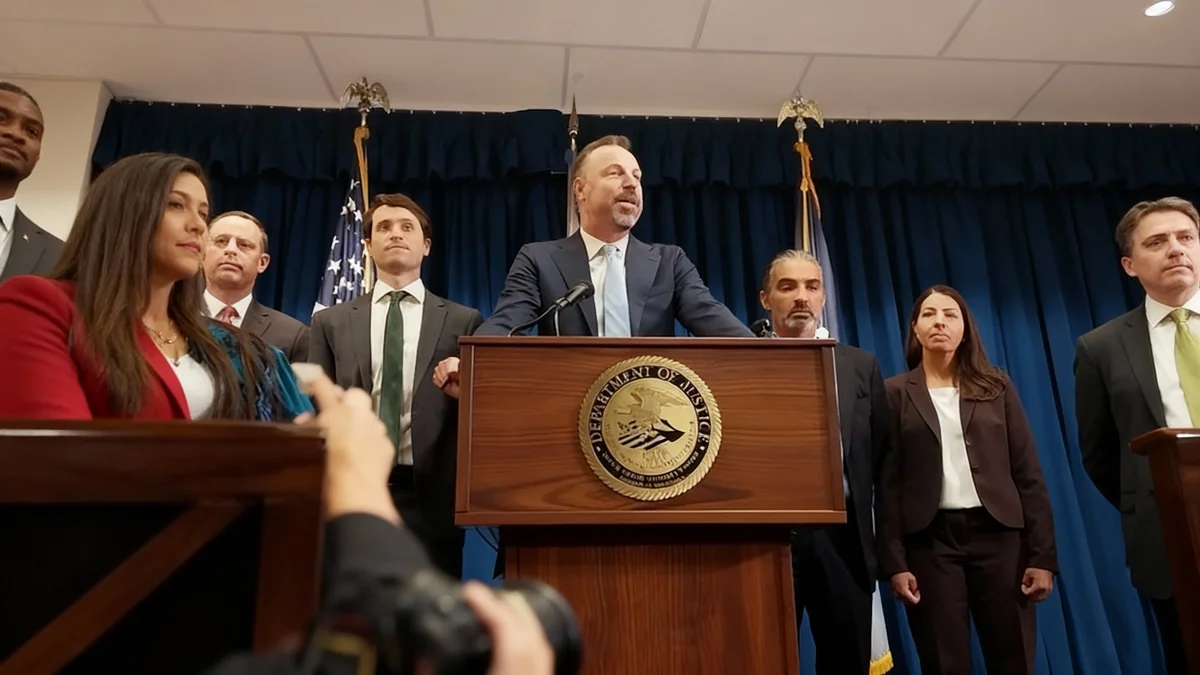The Minnesota state government has initiated a significant measure to combat suspected fraud within its Medicaid system, bringing in a third-party auditor to scrutinize payments. The administration announced it will pause payments for up to 90 days for 14 programs identified as high-risk, a move aimed at restoring public trust but one that has sparked concern among service providers.
Key Takeaways
- Minnesota has hired Optum, a third-party entity, to audit 14 high-risk Medicaid programs.
- The state can pause payments to providers in these programs for up to 90 days if suspicious billing is detected.
- The action follows reports of widespread fraud in state programs, particularly in housing and autism services.
- Service providers have expressed concern that payment pauses could threaten the stability of legitimate organizations.
- The move has drawn mixed reactions from state political leaders, with some calling it a necessary step and others criticizing the administration for acting too late.
A Direct Response to Growing Fraud Concerns
The decision, announced by Governor Tim Walz's office, is a direct response to a series of investigations and prosecutions related to fraudulent billing. Reports have surfaced detailing providers billing the state for housing stabilization and autism services that were never delivered, eroding public confidence in the system.
To address this, the Department of Human Services (DHS) will collaborate with Optum to analyze claims and flag potential issues before payments are made. This proactive approach is designed to prevent fraud from escalating rather than just reacting to it after taxpayer money has been lost.
“We cannot effectively deliver programs and services if they don’t have the backing of the public’s trust. In order to restore that trust, we are pumping the brakes on 14 programs that were created to help the most disadvantaged among us yet have become the target of criminal activity,” Governor Walz stated.
The administration has been clear about its intentions. “If you attempt to defraud our public programs and steal taxpayer dollars out from under the people who need them most — you will be stopped, and you will be held accountable,” Walz added, signaling a zero-tolerance policy moving forward.
Enhanced Oversight Measures
Beyond payment pauses, the targeted programs will face increased scrutiny, including enhanced fingerprint background checks for service providers, initial screening visits, and unannounced site visits to verify operations.
Providers Fear Existential Threat
While the goal of eliminating fraud is widely supported, the method has caused alarm among organizations that provide essential services to vulnerable Minnesotans. The primary concern is that a 90-day pause in payments could be financially devastating for legitimate providers who operate on thin margins.
The Association of Residential Resources in Minnesota (ARRM), an umbrella group for disability service providers, acknowledged the need to stop fraud but warned of unintended consequences.
Sue Schettle, the CEO of ARRM, described the potential payment freeze as an “existential threat” to the care infrastructure. She emphasized the potential impact on legitimate businesses.
“Pausing payments to legitimate providers for up to 90 days is not an accountability measure, it’s an existential threat to the care infrastructure that keeps Minnesotans with disabilities safe, housed, and supported in their community,” Schettle said in a statement. “An up to 90-day payment freeze could push some to the breaking point.”
ARRM also criticized what it called a lack of communication from the governor's office and DHS before the announcement. The group is now urging the state to implement a rapid review process for providers with clean billing histories to avoid disrupting critical services.
The Political Reaction
The announcement has also become a focal point for political debate. Republican leaders criticized the Walz administration, suggesting the action was overdue and that the scope of the problem is larger than previously admitted.
In a joint news release, Republican House Speaker Lisa Demuth and Caucus Leader Harry Niska expressed shock that the administration had “only now identified 14 programs as high risk for Medicaid fraud.” They argued that the situation proves the “fraud crisis is far worse, and far more widespread, than anyone was led to believe by the administration.”
Bipartisan Call for an Inspector General
Despite the partisan criticism, there is some common ground. Leaders from both Republican and Democratic parties have called for the creation of a new, independent Office of the Inspector General to provide dedicated oversight and help prevent misuse of state funds in the future.
On the other side, Democratic Senate Majority Leader Erin Murphy praised the audit as a positive and necessary step. “Fraud schemes are more sophisticated and organized than ever, and the third-party audit announced today will provide enhanced tools for Minnesota to tackle fraud,” Murphy said.
A Closer Look at the Targeted Programs
The 14 programs subject to the new audit and potential payment pauses cover a wide range of services for some of the state's most vulnerable residents. They were selected because of existing evidence of misuse or because they are structured in a way that makes them particularly susceptible to fraud.
The list includes critical support services such as:
- Housing Stabilization Services: This program has already faced significant scrutiny, and the state has taken steps toward its termination.
- Early Intensive Developmental and Behavioral Intervention (EIDBI): Services for children with autism.
- Personal Care Assistance/Community First Services and Supports: In-home care for individuals with disabilities.
- Nonemergency Medical Transportation: Provides rides to medical appointments for eligible recipients.
- Adult Rehabilitative Mental Health Services: Community-based mental health support.
Other programs on the list include Integrated Community Supports, Peer Recovery Services, Adult Day Services, Recuperative Care, Individualized Home Supports, Adult Companion Services, Night Supervision, Assertive Community Treatment, and Intensive Residential Treatment Services. State officials have clarified that a payment will only be paused if a review detects an anomaly, and if fraud is confirmed, the bill will not be paid at all.





